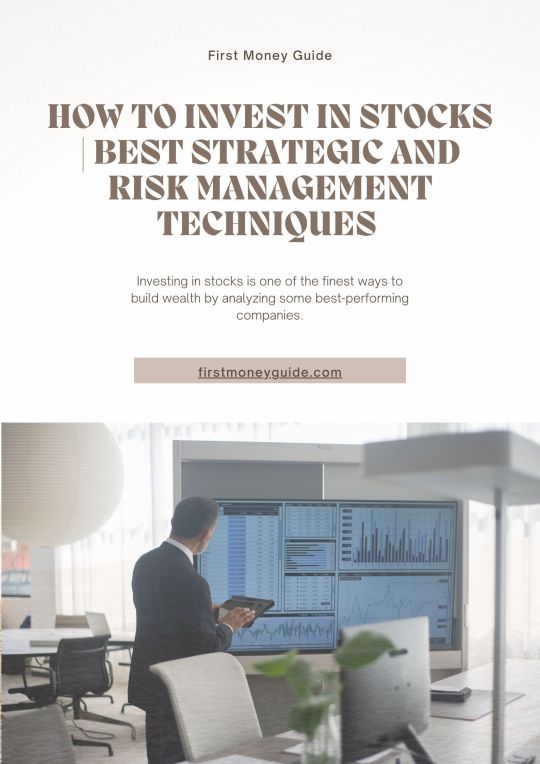#investing in stocks
Text
{ MASTERPOST } Everything You Need to Know about Retirement and How to Retire
How to start saving for retirement
Dafuq Is a Retirement Plan and Why Do You Need One?
Procrastinating on Opening a Retirement Account? Here’s 3 Ways That’ll Fuck You Over.
Season 4, Episode 5: “401(k)s Aren’t Offered in My Industry. How Do I Save for Retirement if My Employer Won’t Help?”
How To Save for Retirement When You Make Less Than $30,000 a Year
Workplace Benefits and Other Cool Side Effects of Employment
Your School or Workplace Benefits Might Include Cool Free Stuff
Do NOT Make This Disastrous Beginner Mistake With Your Retirement Funds
The Financial Order of Operations: 10 Great Money Choices for Every Stage of Life
Advanced retirement moves
How to Painlessly Run the Gauntlet of a 401k Rollover
The Resignation Checklist: 25 Sneaky Ways To Bleed Your Employer Dry Before Quitting
Ask the Bitches: “Can I Quit With Unvested Funds? Or Am I Walking Away From Too Much Money?”
You Need to Talk to Your Parents About Their Retirement Plan
Season 4, Episode 8: “I’m Queer, and Want To Find an Affordable Place To Retire. How Do I Balance Safety With Cost of Living?”
How Dafuq Do Couples Share Their Money?
Ask the Bitches: “Do Women Need Different Financial Advice Than Men?”
From HYSAs to CDs, Here’s How to Level Up Your Financial Savings
Season 3, Episode 7: “I’m Finished With the Basic Shit. What Are the Advanced Financial Steps That Only Rich People Know?”
Speaking of advanced money moves, make sure you’re not funneling money to The Man through unnecessary account fees. Roll over your old retirement accounts FO’ FREE with our partner Capitalize:
Roll over your retirement fund with Capitalize
Investing for the long term
When Money in the Bank Is a Bad Thing: Understanding Inflation and Depreciation
Investing Deathmatch: Investing in the Stock Market vs. Just… Not
Investing Deathmatch: Traditional IRA vs. Roth IRA
Investing Deathmatch: Stocks vs. Bonds
Wait… Did I Just Lose All My Money Investing in the Stock Market?
Financial Independence, Retire Early (FIRE)
The FIRE Movement, Explained
Your Girl Is Officially Retiring at 35 Years Old
The Real Story of How I Paid off My Mortgage Early in 4 Years
My First 6 Months of Early Retirement Sucked Shit: What They Don’t Tell You about FIRE
Bitchtastic Book Review: Tanja Hester on Early Retirement, Privilege, and Her Book, Work Optional
Earning Her First $100K: An Interview with Tori Dunlap
We’ll periodically update this list with new links as we continue writing about retirement. And by “periodically,” we mean “when we remember to do it.” Maybe remind us, ok? It takes a village.
Contribute to our staff’s retirement!
Holy Justin Baldoni that’s a lot of lengthy, well-researched, thoughtful articles on the subject of retirement. It sure took a lot of time and effort to finely craft all them words over the last five years!
In case I’m not laying it on thick enough: running Bitches Get Riches is a labor of love, but it’s still labor. If our work helped you with your retirement goals, consider contributing to our Patreon to say thanks! You’ll get access to Patreon exclusives, giveaways, and monthly content polls! Join our Patreon or comment below to let us know if you would be interested in a BGR Discord server where you can chat with other Patrons and perhaps even the Bitches themselves! Our other Patrons are neat and we think you should hang out together.
Join the Bitches on Patreon
#retirement#retire#how to retire#retirement account#retirement fund#retirement funds#401k#403b#Roth IRA#Traditional IRA#investing#investors#investing in stocks#Capitalize#401k rollover#personal finance#money tips
108 notes
·
View notes
Text

Mastering Stock Investments for Beginners: A Foolproof Guide for Dummies
#stock#stocks#stock market#investing in stocks#investing#financial literacy#stock investments#free stocks#investing for dummies#Warren Buffett#Robert Kiyosaki#black investors#black wealth#black investor#black business#black entrepreneurship
3 notes
·
View notes
Text
All you should know about starting an investment in stocks
If you have some cash that you can set aside, you should consider investing it in stocks. This way, you can let this money grow without having to leave everything behind to look after this investment. If you are new to the investment world, you will need to know how to start investing in the share market. If you want to know the basics of investing in stocks for beginners, this blog can shed some light on this matter.
What to do to start investing in stocks?
If you have your money ready and are confident in this investment, keep the following points in mind:
The type of investor you want to be
Many people want to invest on their own, while others want some professional assistance by their side. The first type will try to study and choose the accounts they find right for their needs and requirements. The other type of investor will definitely look for a reliable broker who can help them make the most of their stock market investment. There is no right or wrong in this, but the first option takes a lot of time and effort, and you may still not be able to choose or handle your investment portfolio properly. The other option spares you a lot of mistakes, as your broker can handle everything on your behalf and in your best interest.
Robo-advisors for DIY stock investors
If you choose and manage your investments on your own, you can use the services of robo-advisers. Many people who are learning how to start investing in share market rely on relevant algorithms for help.
This might seem unfamiliar to you, but it is in fact what the name suggests. This is a product of using technology in providing sane investment advice, especially for beginners. This concept first appeared back in 2008 with the echoes of the financial crisis. But currently, there are various service providers in this field.
Investing in your own employer
If you want to start your DIY investment properly, you can start by investing in your employer’s company. You can do it with a small amount of your monthly paycheck. Being an insider at your employer's company will give you a knowledge advantage. Starting small can also provide you with knowledge and practise in how to buy shares. You will need that type of knowledge before expanding your investment portfolio.
A full-service or discount broker?
A full-service broker gives you complete peace of mind, as you won’t need to worry about a thing. However, their professional services are more suited to larger-scale investors. Their fees can be truly high and they can get a percentage of your operations as a commission. For someone who is still learning how to invest in stocks, a discount broker would charge less than a full-service one. But keep in mind, they offer a smaller range of services that do not include personal consultation or opinion. For instance, this type of broker will let you enjoy full freedom in making the final decision regarding investing in stocks.
5 notes
·
View notes
Text
Throughout the week, gold prices have raised, nearing the $2,400/oz mark, though they ultimately concluded slightly lower.This surge is fueling speculation: will the rally endure?
#jarvisinvest#aibasedadvisor#share market advisor#investing in stocks#ai for stock trading#best stock advisory
0 notes
Text
investing in stocks
Does the idea of Investing in Stocks overwhelm you? Be a champion of Online Trading by attending the Money Expo in Columbia. It's a must for traders.
0 notes
Text
Everything to Know About Tata Technologies IPO : Will You Invest?
The world of investments is buzzing with excitement as Tata Technologies, a global leader in engineering and product lifecycle management, gears up for its Initial Public Offering (IPO). This much-anticipated event promises not just financial growth but also a chance to be part of a company that has been at the forefront of innovation. Here’s everything you need to know about the Tata Technologies IPO.

Offer Details:
Tata Technologies aims to raise approximately Rs 3,042.51 crores through the IPO at the upper price band. The offering includes an offer-for-sale by both investors and promoters, with Tata Motors, Alpha TC Holdings Pte Ltd, and Tata Capital Growth Fund I among the key participants.
What are Issue Date and Closing Date?
The Tata Technologies IPO is set to hit the market on 22 November 2023, creating a window of opportunity for investors eager to be part of this milestone. The issue will close on 24 November 2023, providing a limited timeframe to seize the moment and secure a stake in the future of technological advancement.
What is Lot Size and Price Band?
For those ready to embark on this investment journey, understanding the lot size and price band is crucial. The Tata Technologies IPO offers a lot size of 30 Shares, making it accessible to a diverse range of investors. The price band for this IPO is set between Rs 475 and Rs 500 per share reflecting a carefully evaluated valuation that balances opportunity and value. Remember, the minimum investment by retail investors would be Rs 14,250 at the lower price band.
Why Invest in Tata Technologies IPO?
1. Strong Track Record: Tata Technologies boasts a proven track record of success, with a portfolio of groundbreaking projects that have left a lasting impact on industries worldwide.
2. Strategic Vision: The IPO funds will be channeled into realizing an ambitious vision for the future. This includes investments in cutting-edge technologies, strategic collaborations, and global expansion.
3. Tata Group Backing: As part of the Tata Group, Tata Technologies enjoys the backing of one of India’s most reputable and diversified conglomerates. This affiliation brings stability, reliability, and a commitment to excellence.
4. Sector Dynamics: With a focus on emerging sectors and transformative technologies, Tata Technologies is positioned to capitalize on the rapidly evolving dynamics of the global market.
Financial Snapshot:
Tata Technologies has showcased impressive financial performance, with a reported 42.8% YoY growth in consolidated net profit at Rs 624 crores for the year ended March 2023. Its revenue witnessed a significant increase of 25.81% during the same period.
Global Impact:
As a global company, Tata Technologies operates in key markets, contributing to transformative changes in industries such as automotive, aerospace, and industrial machinery. By investing in Tata Technologies, you’re not just investing in a company; you’re investing in the global progress of technology and engineering.
Technology of Tomorrow:
The future is digital, and Tata Technologies is at the forefront of this technological wave. From digital engineering solutions to advanced product development, the company is positioned to capitalize on the evolving technological landscape. This IPO is an invitation to be part of the journey towards a future where technology is not just advanced but also sustainable and impactful.
Conclusion:
As the Tata Technologies IPO beckons, it presents a unique opportunity for investors to align with a company synonymous with innovation and excellence. While the financials are promising, it’s essential to make investment decisions based on individual financial goals and risk tolerance.
For more information or To open Trading / Demat Account — Visit our Website 👩💻
𝐰𝐰𝐰.𝐢𝐧𝐯𝐞𝐬𝐭𝐦𝐞𝐧𝐭𝐨𝐫𝐨𝐧𝐥𝐢𝐧𝐞.𝐜𝐨𝐦
To talk to our expert team — Call us ☎️
+𝟗𝟏 𝟕𝟗𝟔𝟗𝟏 𝟓𝟑𝟔𝟎𝟎
#stock market#finance#investing stocks#ipo#investing#indian stock market#stocks news#tradinginsights#investmentor#nse#bse#dalalstreet#investing in stocks#nifty#banknifty#stocktrading#tatatechnologiesipo#investmentopportunity#tatagroup#stock analysis#investment strategy#moneymatters#financialfreedom#investmentstrategies
0 notes
Text
Investing in Stock market- A Guide to the beginners| Proinvest Ideas
Introduction
The stock market, often seen as a mysterious and complex financial arena, has been a source of wealth creation for many over the years. While it carries inherent risks, it also offers significant opportunities for those who are willing to understand and navigate its intricacies. In this comprehensive guide, we will delve into the world of investing in the stock market, exploring its fundamentals, strategies, and key considerations for both beginners and seasoned investors. Investing in Stock market
Part I: Understanding the Stock Market
1. What is the Stock Market?
The stock market is a platform where individuals and institutions buy and sell shares or ownership stakes in publicly traded companies. These shares represent a claim on a portion of the company’s assets and earnings.
2. How Does the Stock Market Work?
Stock markets operate through exchanges, such as the New York Stock Exchange (NYSE) and the Nasdaq. Buyers and sellers trade stocks through these exchanges, and prices are determined by supply and demand.
3. Why Invest in Stocks?
Investing in stocks offers several advantages, including the potential for significant returns, the ability to build wealth over time, and the opportunity to participate in a company’s success.
Part II: Starting Your Investment Journey
4. Setting Clear Financial Goals
Before you start investing, it’s crucial to define your financial goals. Are you looking to save for retirement, buy a home, or fund your child’s education? Your goals will influence your investment strategy.
5. Building a Solid Financial Foundation
Before diving into the stock market, ensure you have a solid financial foundation. Pay off high-interest debts, create an emergency fund, and have a budget in place.
6. Risk Tolerance Assessment
Understanding your risk tolerance is key to creating a balanced investment portfolio. Assess how much risk you are willing to take and adjust your investments accordingly.
Part III: Investing Strategies
7. Long-Term vs. Short-Term Investing
Decide whether you want to be a long-term investor or engage in short-term trading. Long-term investors typically buy and hold stocks for years, while short-term traders focus on quick gains.
8. Diversification
Diversification involves spreading your investments across different asset classes and industries. This helps mitigate risk and protect your portfolio from market volatility.
9. Fundamental vs. Technical Analysis
Investors use fundamental analysis to evaluate a company’s financial health, while technical analysis involves studying historical price charts to make investment decisions. Both approaches have their merits.
10. Dollar-Cost Averaging
This strategy involves investing a fixed amount of money at regular intervals, regardless of market conditions. It helps reduce the impact of market volatility.
Part IV: Getting Started with Stock Selection
11. Researching Stocks
Thorough research is crucial when choosing stocks. Look at a company’s financial statements, earnings reports, and industry trends.
12. Blue-Chip vs. Growth Stocks
Blue-chip stocks are established, stable companies, while growth stocks are expected to have higher earnings growth. Your choice depends on your investment goals and risk tolerance.
13. Exchange-Traded Funds (ETFs) and Mutual Funds
For diversification with less risk, consider investing in ETFs or mutual funds. These funds pool money from multiple investors to invest in a diversified portfolio of stocks.
Part V: Risk Management and Monitoring
14. Risk Management
Always have an exit strategy. Set stop-loss orders to limit potential losses and continuously review your portfolio to rebalance it if necessary.
15. Emotional Discipline
Emotions can cloud judgment. Avoid making impulsive decisions based on fear or greed. Stick to your investment plan.
Part VI: The Road to Wealth Accumulation
16. Reinvesting Dividends
Reinvesting dividends can significantly boost your wealth over time. It harnesses the power of compounding.
17. Dollar Expansion
As your financial situation improves, consider increasing your investment contributions. Consistent, incremental investments can have a substantial impact over the long term.
Conclusion: The Journey to Financial Success
Investing in the stock market is not a get-rich-quick scheme but a journey to long-term financial success. By understanding the fundamentals, adopting sound strategies, and managing risk, investors can navigate the complexities of the stock market with confidence. Remember that patience, discipline, and continuous learning are key to achieving your financial goals. Whether you’re just starting or are a seasoned investor, the stock market offers opportunities for those willing to embark on this wealth-building journey.
Read More Info Please Visit: https://proinvestideas.com/

0 notes
Text
Unveiling the Power of Psychology in Stock Market Investing: 11 Key Insights and Strategies
#stock market#stock market for beginners#invest in stock market earnings#how the psychology of selling works#stock market investing for beginners#how to sell - the psychology of selling#the psychology of selling#lessons from the psychology of money#what is happening to the stock market#stock market investing#the stock market crashing#investing in stocks for beginners#investing in stocks#investing#the psychology of money#the stock market now#stock market crash
0 notes
Text
How to Invest in Stocks | Best Strategic and Risk Management Techniques

When everyone has the yearning to be rich and successful but being rich feels like a difficult task? This is a very common question every beginner searches for how to invest in stocks,
Investing in stocks is one of the finest ways to build wealth by analyzing some best-performing companies.
1 note
·
View note
Text
Australia is building up capacity to meet the growing demand for rare earth.

The global demand for rare earth elements increased drastically over the past two decades, in line with its increasing applications in high-end technologies. Rare earth elements are a group of 17 metals made up of 15 lanthanides, plus scandium and yttrium. According to Geoscience Australia, its uses range from routine technologies such as lighter flints, glass polishing mediums, and car alternators, to high-end technology like lasers, magnets, batteries, or fiber-optic telecommunication cables. One of the fastest growing and high-value markets for rare earth is magnets, with rare earth element permanent magnets considered to be three times stronger than conventional magnets and only one-tenth of their size. Permanent rare earth magnets are used extensively in low-emissions technologies like wind turbines and electric vehicles. Other futuristic applications could be high-temperature superconductivity, safe storage and transport of hydrogen for a post-hydrocarbon economy, and as a solution for environmental global warming and energy efficiency issues.
#stock market today#stock market live#stock market asx#stock market australia#buy penny stocks#buy penny stocks australia#penny stocks australia#stock market#penny stocks to buy australia#investing in shares#australian stock market#investing in stocks#stock market analysis#stock research
0 notes
Text
{ MASTERPOST } Everything You Need to Know about Investing for Beginners
Fundamentals of investing:
What’s the REAL Rate of Return on the Stock Market?
Do NOT Make This Disastrous Beginner Mistake With Your Retirement Funds
The Dark Magic of Financial Horcruxes: How and Why to Diversify Your Assets
Dafuq Is Interest? And How Does It Work for the Forces of Darkness?
Booms, Busts, Bubbles, and Beanie Babies: How Economic Cycles Work
When Money in the Bank Is a Bad Thing: Understanding Inflation and Depreciation
Investing Deathmatch series:
Investing Deathmatch: Managed Funds vs. Index Funds
Investing Deathmatch: Traditional IRA vs. Roth IRA
Investing Deathmatch: Investing in the Stock Market vs. Just… Not
Investing Deathmatch: Stocks vs. Bonds
Investing Deathmatch: Timing the Market vs. Time IN the Market
Investing Deathmatch: Paying off Debt vs. Investing in the Stock Market
Investing Deathmatch: What Happens in a Bull Market vs. a Bear Market
Now that we’ve covered the basics, are you ready to invest but don’t know where to begin? We recommend starting small with micro-investing through our partner Acorns. They’ll round up your purchases to the nearest dollar and invest the change in a nicely diversified portfolio of stocks, bonds, and ETFs. Easy as eating pancakes:
Start saving small with Acorns
Alternative investments:
Small Business Investing: A Kinder, Gentler Alternative to the Stock Market
Bullshit Reasons Not to Buy a House: Refuted
Investing in Cryptocurrency is Bad and Stupid
So I Got Chickens, Part 1: Return on Investment
Twelve Reasons Senior Pets Are an Awesome Investment
How To Save for Retirement When You Make Less Than $30,000 a Year
Understanding the stock market:
Ask the Bitches Pandemic Lightning Round: “Did Congress Really Give $1.5 Trillion to Wall Street?”
Season 3, Episode 2: “I Inherited Money. Should I Pay Off Debt, Invest It, or Blow It All on a Car?”
Money Is Fake and GameStop Is King: What Happened When Reddit and a Meme Stock Tanked Hedge Funds
Season 3, Episode 7: “I’m Finished With the Basic Shit. What Are the Advanced Financial Steps That Only Rich People Know?”
Wait… Did I Just Lose All My Money Investing in the Stock Market?
Season 4, Episode 1: “Index Funds Include Unethical Companies. Can I Still Invest in Them, or Does That Make Me a Monster?”
Retirement plans:
Dafuq Is a Retirement Plan and Why Do You Need One?
Procrastinating on Opening a Retirement Account? Here’s 3 Ways That’ll Fuck You Over
How to Painlessly Run the Gauntlet of a 401k Rollover
Ask the Bitches: “Can I Quit With Unvested Funds? Or Am I Walking Away From Too Much Money?”
Workplace Benefits and Other Cool Side Effects of Employment
You Need to Talk to Your Parents About Their Retirement Plan
Season 4, Episode 5: “401(k)s Aren’t Offered in My Industry. How Do I Save for Retirement if My Employer Won’t Help?”
Got a retirement plan already? How about three or four? Have you been leaving a trail of abandoned 401(k)s behind you at every employer you quit? Did we just become best friends? Because that was literally my story until recently. Our partner Capitalize will help you quickly and painlessly get through a 401(k) rollover:
Roll over your retirement fund with Capitalize
Recessions:
Season 1, Episode 12: “Should I Believe the Fear-Mongering about Another Recession?”
There’s a Storm a’Comin’: What We Know About the Next Recession
Ask the Bitches: How Do I Prepare for a Recession?
A Brief History of the 2008 Crash and Recession: We Were All So Fucked
Ask the Bitches Pandemic Lightning Round: “Is This the Right Time To Start Investing?”
#investing#how to invest#stock market#finance#personal finance#investing in stocks#retirement fund#retirement account#investing for beginners#investing 101
71 notes
·
View notes
Text


The Ones Who Live - 1x01 - Years
#i need to.....#Rick Grimes#*#rg#The Ones Who Live#EXCUSE ME#if i said you had a beautiful body would you hold it against me#i love arm#anyone remember those sticky hand things you'd get from grocery store quarter machines#that'd be my existence#just rest your head on a tiddy and have a think ya know#S O L I D#nice rack rick#so well proportioned and fit without being bulky i hate bulky#the mold broke#no it didn't you could make a mold#gonna invest in those kneeling pads people who garden a lot use#and stock in Halls or Ricola#until i can't walk tomorrow#until the neighbors call the cops
1K notes
·
View notes
Text
How Is The Stock Market Doing Today | Proven Stock Trading Trick
Introduction:
What is Stock Market and How It Works?
The stock market is a market where shares or ownership in a company are bought and sold. The stock market does not create any goods or services, but it does provide a way for companies to raise capital. by issuing stocks and for investors to buy and sell stocks.
The stock market does not create any goods or services, but it does provide a way for companies to raise capital by issuing stocks and for investors to buy and sell stocks.
The stock market is the financial public market where the stocks of publicly traded companies are bought and sold.
Ex: Apple Inc. Stock is on the stock market; Microsoft Inc. stock is not on the stock market

How do you invest in stocks?
Stocks are a type of financial instrument that trades on stock exchanges. The first stocks were invented by Antoinette LaFave in 1618.
There are many ways to invest in stocks. In this section, we will discuss the most common methods of investing in stocks, such as buying and selling shares, mutual funds, and bonds.
Investing in stocks is a popular way to grow your assets. Most people invest their money into the stock market because they believe it will offer them higher returns than what savings accounts or CDs can offer.
Investing in stocks is also a good way to diversify your portfolio and spread risk across multiple investments.
For example, if you own 10 different companies and each company has 10 different shares that you purchased for $100 each, then your total investment would be $1,000. If one of these companies drop by 50%, then you would only lose $500 on that company - not all of your investment
What are the benefits of investing in stocks?... Learn More
0 notes
Text
#Is it really safe to invest in stocks#share trading#share market#short-term trading#investing in stocks#share market tips#stock tips#share tips#Sharetipsinfo
1 note
·
View note
Text
Investing in Stocks
Does the idea of Investing in Stocks overwhelm you? Be a champion of Online Trading by attending the Money Expo in Columbia. It's a must for traders.

0 notes
